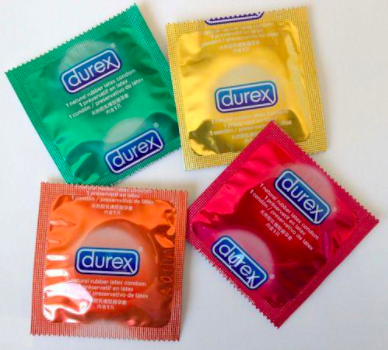ABSTAIN FROM ABSTINENCE ONLY

source: allcondoms
March 30, 2018
Many are familiar with the comedic scene from Tina Fey’s film Mean Girls in which the P.E. teacher dramatically says “Don’t have sex, because you will get pregnant and die! Don’t have sex in the missionary position, don’t have sex standing up, just don’t do it, ok, promise?”
The sentiment behind this statement, while intended to be parodic, is one that rings a bell for many students attending public high schools.
Most high school students are required to take a course regarding health and sexual education.
Because of the sensitive issues revolving around these topics, many issues taught in health class are heavily contested. An example of this is abstinence.
Abstinence has consistently been a central component of sexual education. The CEO of Concerned Women for America, Penny Nance, claimed that “abstinence is the only 100% effective form of birth control,” according to NPR.
While this is technically true, expecting high school-aged students to not engage in sexual acts is unrealistic.
“The problem with teaching only abstinence is that it will not prevent sex- as much as abstinence is taught, there will still be some students who have sex, it’s inevitable,” said AHS senior and Feminist Club senior co-leader, Elena Andrews.
In addition, having insufficient information about contraception in sexual education curriculums is inimical. It will not prevent sex and will only encourage unsafe sex.
Currently, the United States is one of the lowest-ranking developed nations in the world in preventing sexually-transmitted diseases and pregnancy. As a means of alleviating this, the United States government funded numerous abstinence-only programs.
Statistics starting in 2008 from the Guttmacher Institute state that one-third of American kids from the ages of 15 to 19 were taught virtually nothing about contraceptives.
Yet, according to a study conducted by Kathrin F. Stranger-Hall and David W. Hall, this has had little-to-no effect on teenage pregnancies within the United States and they remain at their high rate.
In fact, the states that have championed abstinence-only education the most have the highest rates of teen pregnancy in the United States.
In modern society, the media is rife with sexual imagery and content. Expecting all young adults to resist sexual urges in a society filled with them is unrealistic.
“It’s simply unrealistic to feed [students] media where sex is everywhere and not expect them to be curious,” Junior Aidan Diggins-Kennedy said.
The desire to avoid an abstinence-based education has also driven students such as to seek alternative health classes such as Our Whole Lives (OWL).
OWL is a sexuality-based education program organized by the Unitarian Universalist Association. Its curriculum primarily centers around self-worth, sexual health, justice and inclusivity and responsibility.

“Our Whole Lives provides accurate, developmentally appropriate information about a range of topics, including relationships, gender identity, sexual orientation, sexual health, and cultural influences on sexuality,” according to the Unitarian Universalist Association.
The program also prides itself on being candid and open with students about issues regarding sex and different sexual orientations.
“Honest, accurate information about sexuality changes lives.”
Numerous Ames high students such as Diggins-Kennedy and Senior Eileen Murray have participated in this program and have expressed their approval.
“They tried to show us that sex is okay and not harmful,” Murray said. “It was really informative and didn’t put such a stigma on mental health and sex.”
One might ask how the United States should go about lowering its high STD and pregnancy rates. Perhaps various nations in Europe can provide an answer.
Sex education is mandatory in Northern and Western parts of Europe, no questions asked. To add, sex education is also seen as something completely practical and necessary.
The public policy director at the Guttmacher Institute, Heather D. Boonstra, said that in western Europe the societal attitude towards teenagers engaging in sexual acts is far more accepting.
“With that acceptance comes strong cultural norms that emphasize that young people who are having sex should take actions to protect themselves and their partners from pregnancy and STIs,” Boonstra said, as quoted in an article on Vice.com.
European countries such as Belgium, Austria, Slovakia, Luxembourg and France teach issues such as communication and consent as opposed to abstinence.
Elementary schools in Germany use a graphic picture book called “Wo Kommst Du Her?” (Where Do You Come From?) written by Sonja Hardin to show young students a real-life depiction of healthy sexual relationships, according to The Atlantic.
Students in the Netherlands even report that they practiced putting condoms on dildos with all of the lights out, said Jules Suzdaltsev of Vice.
The only exceptions are the United Kingdom and primarily Catholic areas of Italy. These areas were reported to have the highest pregnancy rates in Europe.
Often, the case is that abstinence is taught so as not to offend religious students.
This possible mixing of religion and education is problematic in a nation that mandates separation of church and state.
Under the Trump administration, funds delegated to abstinence-only programs will take money away from affordable birth control through cuts made to the Title X program (which guaranteed affordable and effective birth control for women through their health insurance).
It is possible that with these cuts, millions of women would lose access to birth control, according to Planned Parenthood.
Sexual education is essential for students in this day and age and it is important for it to be taught realistically and not by antiquated standards and beliefs.



























